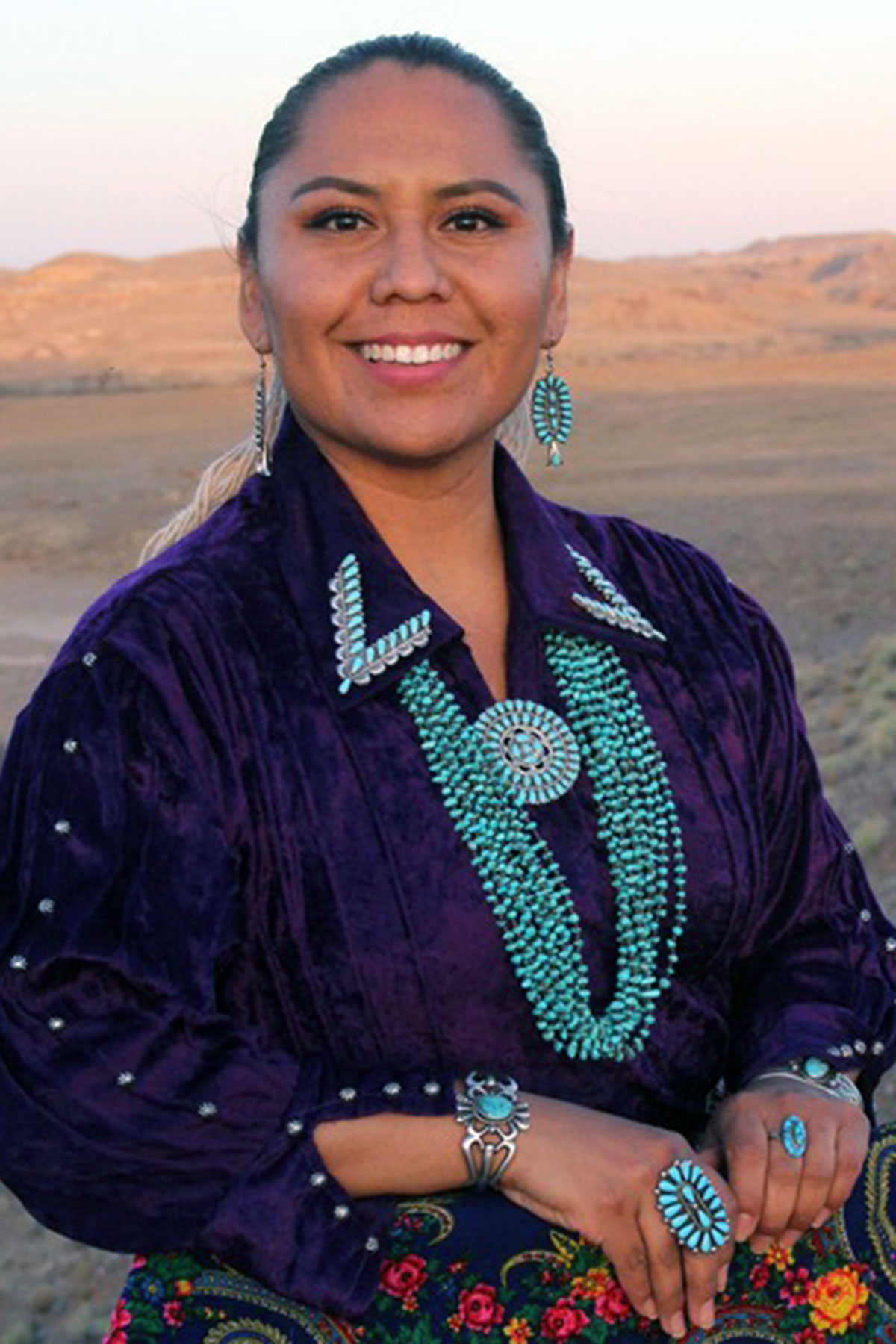Sunnie Clahchischiligi of Searchlight New Mexico is the winner of this year’s $20,000 Doris O’Donnell Innovations in Investigative Journalism Fellowship from the Center for Media Innovation at Point Park University.
Clahchischiligi, a contributing writer for Searchlight New Mexico, proposed a project to investigate how potentially thousands of students on the Navajo Nation went missing during the pandemic and expose myriad educational failures, which run far deeper than the public knows. Clahchischiligi will gather exclusive, unearthed data to document the negligence of schools across the Navajo Nation and beyond. Clahchischiligi grew up on a remote homestead on the Navajo Nation near Teec Nos Pos, Ariz., and has worked in journalism for 15 years.
“I am elated, honored, and extremely humbled to receive this fellowship. It will allow me to continue working on stories focused on Navajo students — the Navajo Nation’s future leaders — as well as to reveal the critical problems within the education systems in Indian Country,” Clahchischiligi said. “Investigative reporting in Indian Country is challenging. Gathering data from agencies like the Bureau of Indian Education is also difficult — and stonewalling occurs often. But with the help of this fellowship, I will be able to reveal how Indigenous students have been denied the education they deserve.”
Laura Corley, a freelance reporter from Coastal Georgia’s The Current, is the winner of the second-place fellowship award of $5,000. Corley’s project will investigate the toxicity of the waterways near Brunswick, Ga., where tons of toxic waste was dumped by factories for decades. The Gullah Geechee people, descendants of enslaved Africans, are among the most affected. Across the causeway live some of Georgia’s most affluent communities. Local officials, worried about the image of these wealthy retreats, refuse to acknowledge this crisis. Corley’s work will provide clarity about the public health threat of the toxins, reveal the political lobbying that has kept them unregulated, and ideally inspire legal changes to hold companies and officials to account.
Rich Lord, economic development reporter/editor for PublicSource in Pittsburgh, is the winner of the third fellowship award of $2,500. Lord’s project will probe into “milking” by landlords in the Mon Valley, a process whereby landlords obtain properties as cheaply as possible, spend little on upkeep, dodge enforcement efforts, and churn through tenants using eviction to maximize profits.
The Center for Media Innovation will be working closely with each of the fellowship winners on the development of their stories. As part of this process, students in Point Park’s journalism program will have the chance to engage with the fellows throughout the upcoming academic year.
A record number of applications were received this year. More than 40 pitches were submitted by a diverse and exceptionally talented group of writers, filmmakers and multimedia journalists across the nation.
“The mission of the Doris O’Donnell Fellowship is to help support the creation of innovative, substantive stories that have a significant impact. This year, each of our winners indicated that, without the fellowship award, these important stories would be left untold,” said Andrew Conte, Director of the Center. “We were pleased to review such a brilliant variety of story ideas from so many well-credentialed storytellers.”
A panel of seven distinguished judges with credentials in innovative and investigative journalism evaluated applicants based on value, innovation, engagement, diversity and ability.

